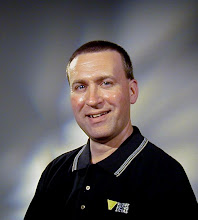Review - Company by Max Barry
Forget Peter Drucker. Forget Ken Blanchard. Forget everything you’ve ever heard of TQM. Forget all of what you think you know of business management. It’s all wrong. The bottom line is this: at the end of the day, the company’s only obligation is to its bottom line. Despite rapid changes in the workplace in the last two centuries and despite government regulation of human and civil rights in the workplace, the labor-management structure is no different than it was at the start of the Industrial Revolution: labor is nothing more than cattle and it is management’s job to herd them.
Oh, you say you work for a progressive company that has values of peace, love and brotherhood. I’m sure you do, but when push comes to shove, those values take a backseat to the bottom line. If it pays to have peace, love and brotherhood values, then they’re worth it, but if peace, love and brotherhood fail to pay dividends, then profit motive prevails.
Nothing illustrates this principal more than Company by Max Barry. It all starts one day when new business grad, Steven Jones, joins the team at Zephyr Holdings in the heart of Seattle, Washington. A doughnut comes up short in Jones’ new department of Training Sales. From there Barry whisks us away on a journey of corporate greed, corruption, politics and manipulation that is as riveting as any company annual report, but only a third as fictional.
Zephyr Holdings, it turns out, is a dummy company, an experiment being run by CEO Daniel Klausman and a cadre of covert agents for Project Alpha. Under his direction, Project Alpha conducts experiments in management techniques that are more like Nazi mind-control than management techniques. Employees of Zephyr Holdings are given pointless, mind-numbing jobs that they carry out with the greatest of efficiency only to have already hidden goals abruptly changed. Zephyr employees are subjected to de-personalization experiments where they are referred to only by their last names, deferred rewards experiments and punitive social experiments such as forcing all smokers to smoke in a designated “Smokers’ Corral” just to see how they react and how much more work can be gotten out of them once their spirits are broken to the whim of the company.
Klausman and Project Alpha publish all the results of these experiments in books called The Omega Management System which has become the standard management philosophy du jour and off of which Klausman and Project Alpha make a ton of money. All of this is secret, and has been for 10 years, until Steven Jones joins the company, smells something fishy and starts nosing around.
What he finds is that he is caught in a classic Catch 22, being forced to work as an agent for Project Alpha or get fired with no hope of being hired anywhere else in the future. Jones tries desperately to undermine Project Alpha from within, but when his feelings for the tempting Eve Jantes, an Alpha agent who poses as a receptionist who does absolutely no work and drives an Audi making people think she is Klausman’s mistress, get in the way, he finds that the only way to undermine Alpha and get out from under their control is to expose them to the employees at Zephyr.
I recently spent two weeks listening to the unabridged audio version of Company driving to and from work and I have to say that I had difficulty controlling my car at times I was laughing so hard at situations that so accurately mirrored real-life business situations that I have either been part of or have witnessed. It wouldn’t be so funny, or so painful, if it all didn’t have a ring of truth.
Barry has nailed the very heart of all management philosophy’s: left to their own devices, employees will fritter away their time and not do a lick of work unless management puts highly focused and manipulative task-oriented procedures into effect. Perhaps this is a bit cynical, but I have read enough management books and I have found the same theme running through them: do this, and your employees will do that. Even the most human-centered of the management philosophers, Ken Blanchard and Spencer Johnson, are still manipulative. Barry’s Company is an example of what can and will happen if these philosophies are allowed to take hold on a large scale. He says this, “Stop the insanity!”
This novel is THE novel for anyone who has ever held a job, doing anything, anywhere. If you have ever been forced to do something in your job, not because it must be done, but because it can be done, then you know what this novel is all about. You’ve lived it.
Barry’s style is poetic, sardonic, satirical and laugh-out-loud funny and “the company” is a perfect target for this style. Barry skewers “the corporation” as surely as the bullfighter skewers the raging bull in the arena.
The only suggestion I have for Barry is this: even though you are an Australian, you are writing a novel about the American business landscape and as such need to use American idiom. Here we call them “job bids” not “job tenders.” That being my biggest criticism of the whole novel, I say this: Kudos!
Now, stop reading this review and go out and buy yourself a copy of Max Barry’s Company and read it. You’ll see your employer, your coworkers, your customers, your friends and, for better or worse, yourself in it. This is a briskly paced satire of corporate America and should be read by anyone in business, planning on going into business or working anywhere drawing a paycheck for any reason. It pulls the curtain aside from that mystical Oz, the employer, and reveals him to be nothing more than a naked wizard pulling the employees’ strings and manipulating them to make the corporation money. Bottom line.
***** out of ***** stars

